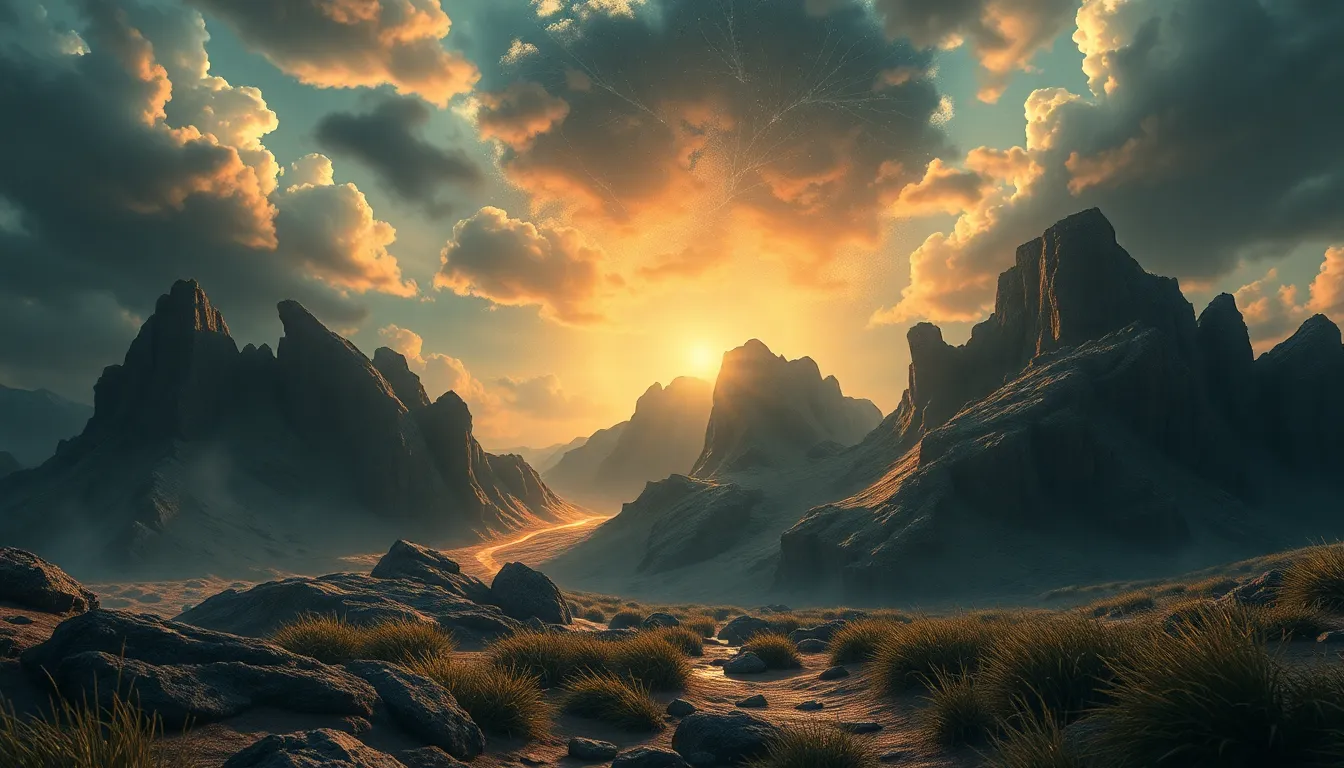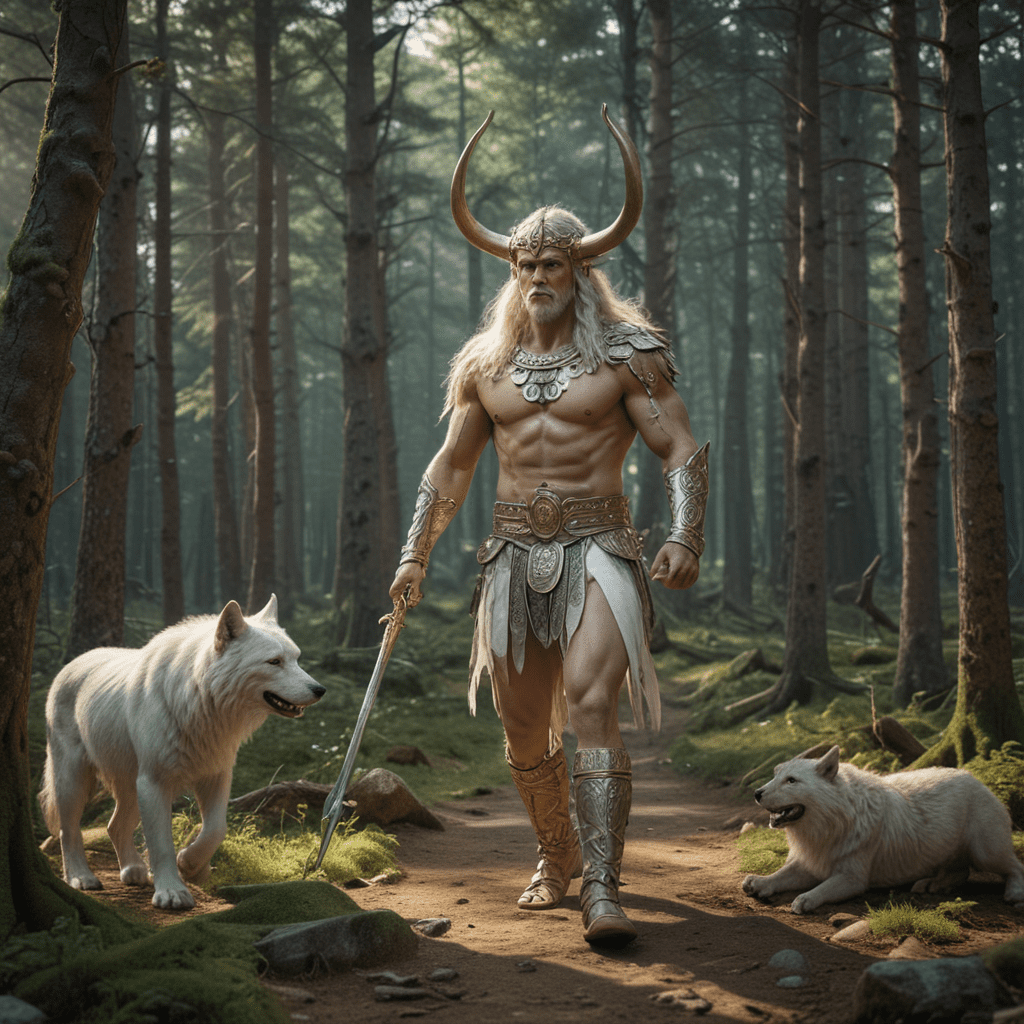The Myth of Creation: How Stories Shape Our Understanding
I. Introduction
Creation myths are the foundational stories that explain the origins of the world, humanity, and the cosmos. They serve not only as narratives of beginnings but also as frameworks through which cultures understand their existence and place in the universe. These myths are integral to human culture and psychology, providing insights into the values, beliefs, and moral systems of different societies.
This article aims to explore the multifaceted nature of creation myths, examining their historical, psychological, and educational significance. We will delve into their role in shaping identities, their relationship with scientific narratives, and their evolution in a globalized world.
II. The Nature of Myths
A. Understanding myths: Definitions and characteristics
Myths are traditional stories that often involve supernatural beings or events, serving to explain natural or social phenomena. They are characterized by:
- Their narrative quality, often involving a journey or transformation.
- The use of symbolism to convey deeper meanings.
- Their function in conveying cultural norms and values.
B. The role of myth in various cultures
Myths play a crucial role in the cultural fabric of societies, providing a sense of identity and continuity. They often reflect the historical experiences and environmental contexts of a culture. For instance, myths from agricultural societies may emphasize fertility and the cycles of nature, while those from nomadic cultures might focus on journeys and survival.
C. Myths as vehicles for morality and values
Many creation myths convey moral lessons, serving as guides for ethical behavior. They often embody the values that a culture holds dear, teaching generations about right and wrong through allegorical stories.
III. Historical Perspectives on Creation Myths
A. Overview of creation myths from different cultures
Creation myths vary widely across cultures, reflecting diverse worldviews and experiences:
- Western traditions: In Judeo-Christian traditions, the Book of Genesis narrates the creation of the world in six days, emphasizing a purposeful creation by a singular deity.
- Eastern traditions: Hindu cosmology presents a cyclical view of creation, with deities like Brahma creating the universe, while in Buddhism, the focus is on the impermanence of existence.
- Indigenous narratives: Native American and Aboriginal myths often involve the Earth and nature as central elements, emphasizing a deep connection to the land and its resources.
B. Comparative analysis of creation stories
Despite their differences, many creation myths share common themes, such as chaos preceding order, the emergence of life from water, and the duality of creation and destruction. This comparative analysis highlights the universal human concerns reflected in these narratives.
C. Evolution of these myths over time
Creation myths are not static; they evolve with societies. Historical events, cultural exchanges, and advancements in knowledge can reshape these narratives, integrating new elements while retaining core themes.
IV. Psychological Significance of Creation Myths
A. Myths as tools for understanding human existence
Creation myths serve as frameworks for individuals to grapple with existential questions about life, purpose, and the nature of reality. They provide narratives that help people make sense of their experiences and the world around them.
B. The impact of creation myths on identity and community
These myths foster a sense of belonging and identity within communities. Shared narratives create bonds among individuals, reinforcing social cohesion and collective values.
C. The role of myths in coping with existential questions
In times of crisis or uncertainty, creation myths offer comfort and hope. They provide answers to profound questions about existence, suffering, and the unknown, helping individuals navigate their fears and uncertainties.
V. Creation Myths and Scientific Understanding
A. Contrasting myths and scientific explanations
Creation myths often stand in contrast to scientific explanations like the Big Bang Theory. While science seeks to explain the mechanisms of the universe, myths focus on meaning and purpose.
B. The tension between faith and science
This tension raises questions about belief systems. Many individuals find themselves balancing faith in these myths with scientific reasoning, leading to diverse interpretations of existence.
C. How myths can coexist with scientific narratives
Despite their differences, myths and scientific narratives can coexist. Many people view myths as symbolic truths that complement scientific understanding, enriching their worldview.
VI. The Role of Storytelling in Shaping Beliefs
A. The art of storytelling and its impact on culture
Storytelling is a powerful tool for conveying beliefs and values. Through narratives, cultures pass down knowledge, history, and moral lessons, shaping the collective consciousness.
B. How narratives influence personal and collective beliefs
Narratives shape individual identities and community values. They provide context for personal experiences and help individuals relate to broader social issues.
C. The power of metaphor in understanding complex ideas
Myths often employ metaphor to convey complex ideas, allowing individuals to grasp abstract concepts through relatable stories. This makes profound truths accessible to a wider audience.
VII. Modern Interpretations of Creation Myths
A. Contemporary retellings and adaptations
In modern times, creation myths are retold and adapted across various media, including literature, film, and art. These adaptations often reflect contemporary values and issues, making ancient stories relevant to today’s audiences.
B. The rise of secular and philosophical interpretations
Secular interpretations of creation myths have emerged, emphasizing philosophical reflections on existence without relying on traditional religious frameworks. This allows for a broader understanding of human experience.
C. The influence of technology and media on myth-making
Technology and media play a significant role in the creation and dissemination of new myths. Social media, for instance, can rapidly spread new narratives, reshaping cultural understandings in real-time.
VIII. The Educational Role of Creation Myths
A. Myths in literature and their pedagogical value
Creation myths hold significant educational value, offering insights into different cultures and worldviews. They serve as a springboard for discussions on ethics, philosophy, and history.
B. Using myths to teach critical thinking and cultural awareness
Through the analysis of myths, educators can foster critical thinking skills and cultural awareness, encouraging students to explore diverse perspectives and question their assumptions.
C. The role of myths in shaping moral education
Myths often convey moral lessons, providing a framework for moral education. They teach values such as compassion, justice, and respect, guiding individuals in their ethical development.
IX. Future of Creation Myths in a Globalized World
A. The blending of myths in multicultural societies
As societies become increasingly multicultural, the blending of different creation myths can lead to new understandings and interpretations. This fusion enriches cultural dialogues and fosters mutual respect.
B. The impact of globalization on traditional narratives
Globalization can threaten traditional narratives, as dominant cultures overshadow local myths. However, it also offers opportunities for revitalization and reinterpretation of these stories in new contexts.
C. The potential for new myths to emerge in the digital age
The digital age facilitates the creation of new myths as individuals share stories across global platforms. These emerging myths reflect contemporary challenges, such as environmental crises and technological advancements.
X. Conclusion
Creation myths hold immense significance in human culture, shaping our understanding of existence and identity. They provide frameworks for morality, community, and personal meaning. As we navigate a rapidly changing world, the enduring power of these stories continues to influence our beliefs and values, reminding us of the importance of narrative in shaping human understanding.




